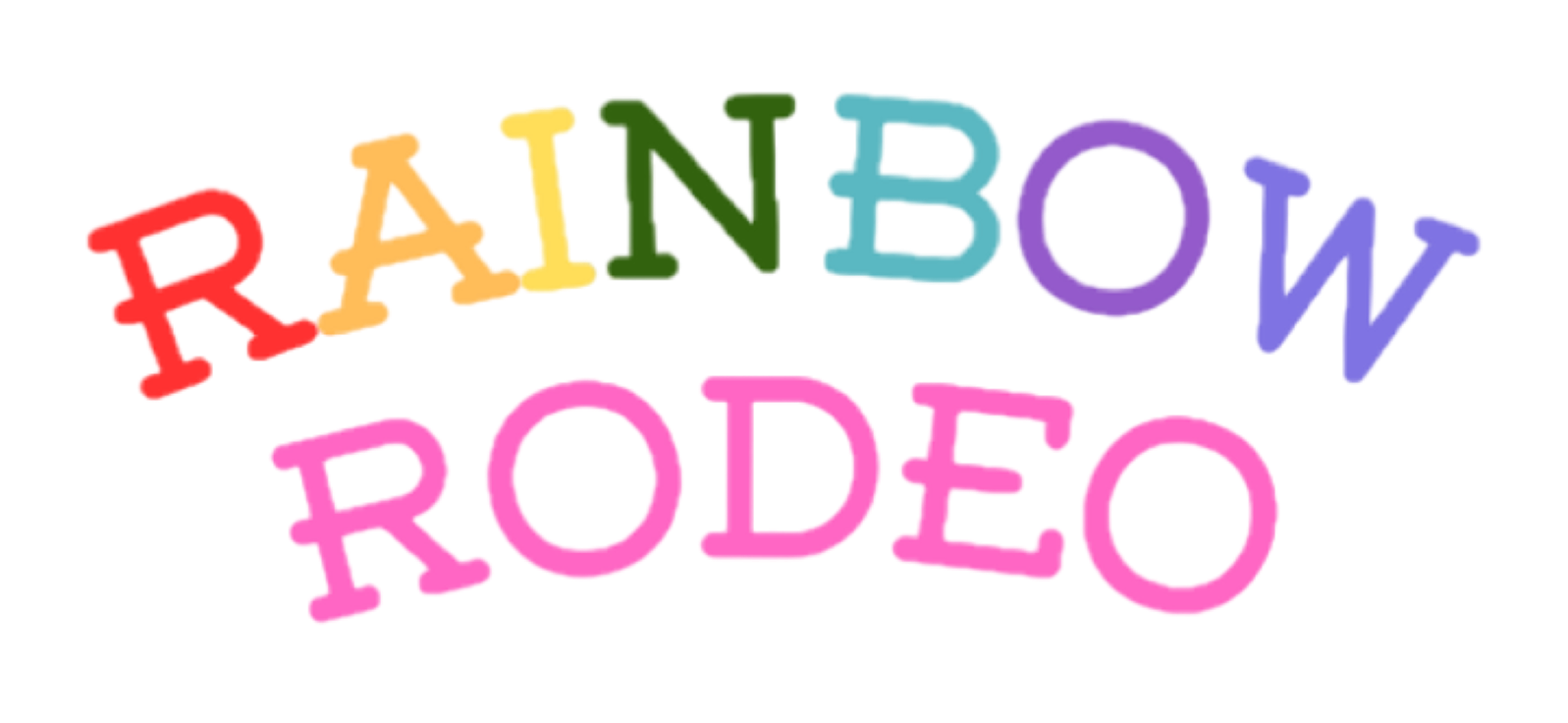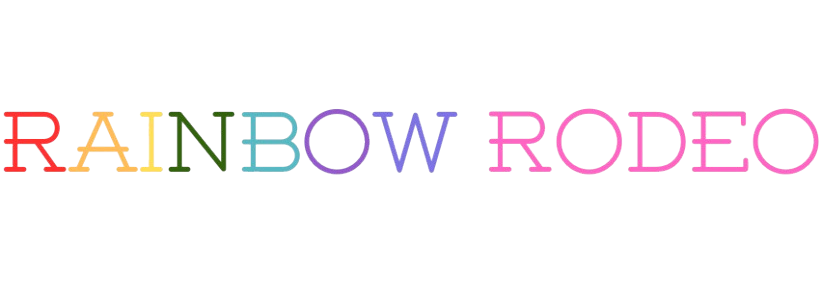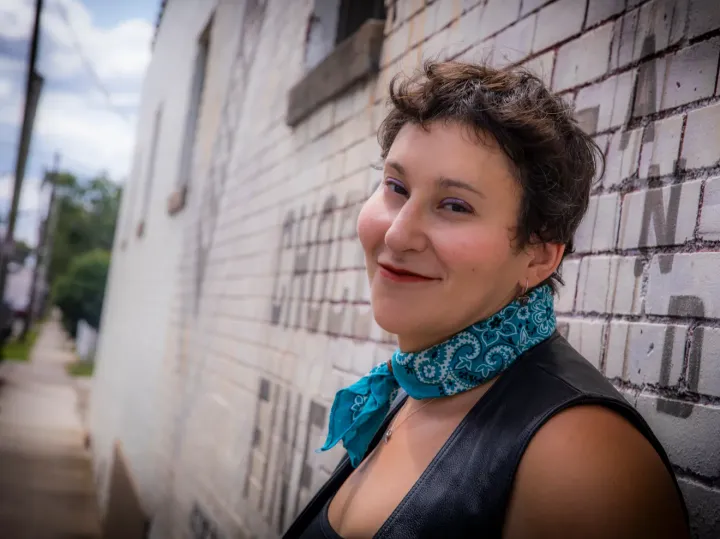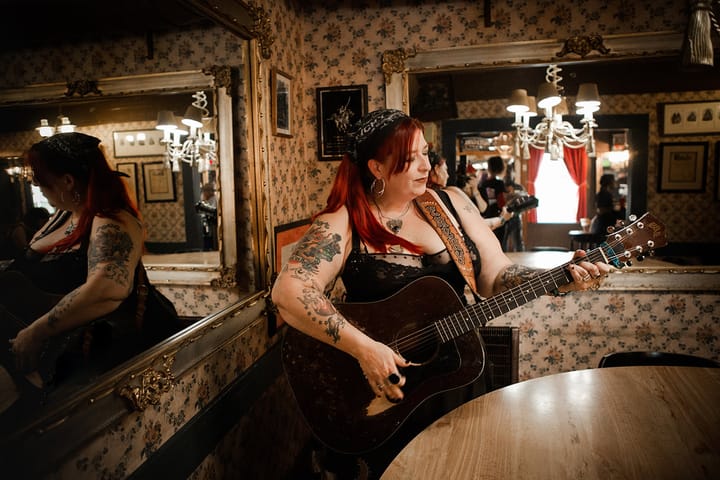Out of the Shadows: The Story of Trans Country Artists

Read the full article on the Rainbow Rodeo Patreon! With your support, Rainbow Rodeo can publish more feature-length stories like these by talented LGBTQ+ journalists across the world.
Country music can be a lonely medium for artists and listeners who don’t conform to the norm, but dive just below the surface and there’s a cornucopia of queer and trans artists who’ve carved out niches, formed communities, and put to song the pains of being trans in an increasingly hostile political climate.
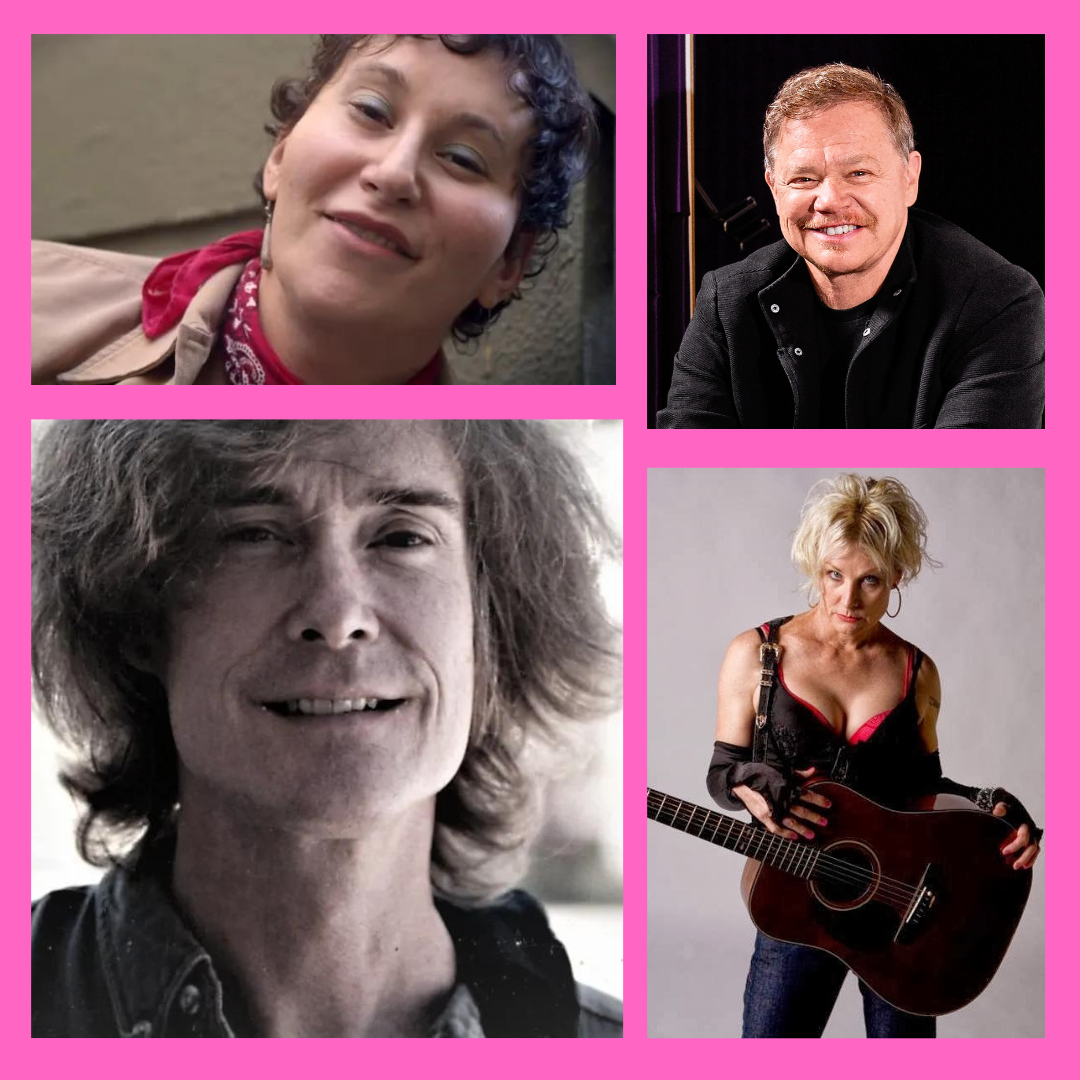
So, it’s time to a shine a light and showcase the trans trailblazers who paved the way for zeitgeist-smashing artists like Jaimie Wilson and Ryan Cassata, the first openly trans musician to play on the Vans Warped Tour.It’s like Shawna Virago says, “it’s important to know about our trans and queer ancestors that came before us and made our lives possible.”
Virago was one of America’s first openly transgender women to tour nationally, performing as her true self since the early nineties. She was a pioneer in the pre-millennial punk scene years before Rolling Stone put Laura Jane Grace (of folk punk rockers Against Me!) on their front cover, publicly coming out under the limelight in 2012. Virago’s best known for her firebrand fusion of punk and country, a rich tradition that’s given rise to Sarah Shook & the Disarmers, fronted by non-binary singer-songwriter River Shook.
The fairy godmother of trans country artists, Virago writes and performs a potent mix of folk, alt-country, and punk that grew out of the crucible of eighties LA. Her music is easily on par with the great country lyricists – Guy Clarke, Townes Van Zandt, Dolly Parton, Lucinda Williams, Tammy Wynette – despite earning only a fraction of the fame and recognition. Throughout her career, she’s never strayed far from her punk approach and gender identity. “My transness is me, there’s no separation between being trans or being a musician,” she says. “My gender is influenced by the mix of punk and country and my music is influenced by being trans.”
As with many trans artists working on the fringes of Americana, Virago has largely made peace with operating antithetically to the mainstream. “Since I’ve never seen myself as a commercial artist, I’ve not paid attention to white cishet men musicians for a long time. I’m more inspired by trans and queer artists,” she says. “I feel lucky to have been invited out to Nashville the past couple years for Americanafest and shared the stage with like-minded people such as Cindy Emch and Mya Byrne.”
Every trans person who’s been able to come out in country music is a celebration but, sadly, there have been – and continue to be – many who are unable. There’s no example more poignant than Dave Carter. Carter was headed for the stars in the folk-Americana space, with his works covered by genre luminaries Willie Nelson and Joan Baez (I’m using he/him pronouns as these were what Carter used publicly before his untimely death). The latter even compared him to Dylan.
Unknown to almost everyone else, Carter was privately transitioning and had support from Baez herself after confiding in her when they were on tour together. But a fatal heart attack in 2002 cut short his career’s rapid ascent and his journey to live his true gender. Not only was the world robbed of untold hours of music from the American songbook, Mya Byrne claims that if Carter was able to come out, he would have significantly moved the goal posts for trans folks within country and Americana, causing a seismic shift in the mid- to late-noughties. Indeed, she posits that many artists in this space would have found themselves in very different positions in their careers, and wouldn’t have felt the need to force themselves to fit a cisheteronormative world that mostly shuns them.
A case in point is Cidny Bullens, an artist truly deserving of the “legend” label. Bullens began his long-lived career as a backup singer for giants Gene Clark – a founding member of The Byrds – Elton John, and Rod Stewart, and provided vocals on the soundtrack for camp movie classic Grease, before becoming a solo Americana artist in seventies and eighties. It wasn’t until 2012 that he came out publicly as a trans man. Thankfully, working with pop greats and a back catalogue of nine critically acclaimed solo albums protected the two-time Grammy nominee from any backlash. (Learn more about Cid’s rock’n’roll life on episode 19 of the Rainbow Rodeo podcast!)
Bullens is especially important to Mya Byrne, who became the first transgender woman featured in Rolling Stone Country and who is often erroneously thought of as the first transgender country music artist, though this does speak to her visibility and importance. “More than anyone, Cid Bullens was the first out trans person I knew within the Nashville side of Americana,” she says, “and he helped me get the courage to keep on truckin’.”
Byrne is quick to shoot down any claims that artists sell off their integrity and set aside their identities, hoodwinking audiences and record execs to make cash. “There’s this idea that trans artists like Dave Carter or my friend Deena Kaye Rose—who came out after a successful two-decade career writing hits for Jerry Reed, John Denver, and Johnny Cash—were not making art that reflected their trans selves during their active careers, which is hogwash. Our transness is erased whenever convenient.”
Self-described as a “butch-leaning trans dyke,” Byrne came out in 2014 and faced a steep uphill struggle to be seen and heard, despite courting plenty of attention as an up and coming star pre-transition. She was named as one of New York’s most promising artists by The Aquarian two months before coming out but, in a cruel turn that’s common for so many trans artists, the publication blacklisted her, failing to respond to any of her press requests after coming out and didn’t list a single show from that point on.
“My transness and the experience of being trans has simply made me a better writer because I am coming from a place of knowing myself enough to know what I want to change in this world and what seems unfair, violent, wrong, or what should and could be celebrated,” says Mya Byrne. “And this music belongs to me, too, so I queer the fuck out of the traditional sounds of outlaw country. At the end of the day, I’m a storyteller, a painter, a weaver of tales.”
